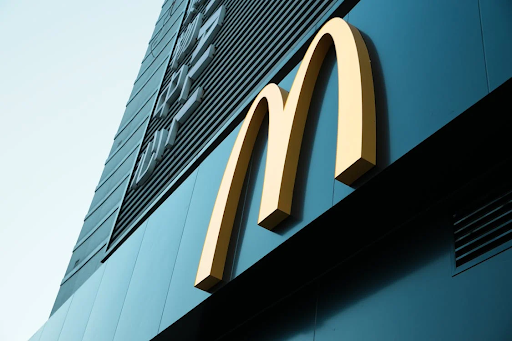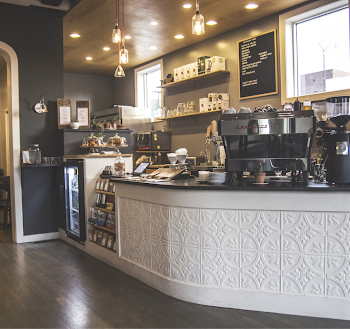
Does your restaurant need a unique identity to attract attention in today’s competitive food industry?
Surviving the current restaurant industry demands restaurant PR because it has evolved from being a luxury into a necessity. The saturation of the restaurant industry makes a strong brand identity essential for restaurant success rather than just an advantage.
It’s absolutely essential for success.
Approximately 90,000 licensed food and drink establishments operate in the UK as they compete for visibility. Exceptional chefs and groundbreaking restaurant concepts risk fading into obscurity and shutting down without adequate Public Relations support.
The most successful restaurants use strong PR strategies which help them grow rapidly while building a loyal customer base that increases their profits.
What’s Inside:
- Why Restaurant PR Is Critical For Success
- Main Components of Powerful Restaurant Brand Identity
- Proven PR Strategies That Actually Work
- How To Handle PR Disasters
- When To Hire A PR Specialist
Why Restaurant PR Is Critical For Success
Effective restaurant PR goes beyond magazine mentions and influencer posts about new menu items but these aspects do play a beneficial role.
Your restaurant needs to establish and manage its story before another entity controls it.
Here’s why it matters:
- Metropolitan restaurants must stand out among hundreds of available dining options.
- People prefer to dine at locations that have been recommended by other individuals
- Effective public relations generates direct bookings because restaurants become less dependent on third-party booking platforms that charge fees.
- Restaurants with strong positioning have the ability to implement premium pricing strategies.
Industry statistics show that the UK restaurant market expanded by five percent in 2023 to approach a value of 19 billion British pounds. The troubling aspect is that UK restaurant market traffic fell by 7.7% during the first half of 2025 when compared to 2024.
Restaurants face increased competition as the number of diners continues to decline.
An effective PR strategy allows you to secure a larger portion of the diminishing market. By partnering with an experienced restaurant PR agent you’ll generate buzz that maintains full tables while competitors remain puzzled over lost customers.
Core Elements Of A Strong Restaurant Brand Identity
Effective restaurant PR depends on developing a clear and compelling brand identity. Your promotional campaigns will lack direction and potency without a clear brand identity.
Multiple essential components make up your brand identity.
Your Restaurant’s Story
A memorable restaurant experience extends beyond just food service through its unique story. Maybe it’s:
- Your chef progressed from home cooking to working in a professional kitchen
- A family recipe passed down through generations
- You want to address an unmet need in the local food market through your restaurant passion.
People connect with stories, not sales pitches. An authentic story creates content for media outlets while providing diners with meaningful experiences to share.
Visual Identity
Your visual identity includes:
- Logo design
- Interior aesthetics
- Food presentation style
- Website and social media visuals
The combination of visual elements should produce a seamless overall experience. Potential customers experience confusion when a cluttered restaurant interior clashes with a sleek minimalist website design.
Voice & Tone
How does your restaurant communicate? Are you:
- Playful and casual?
- Sophisticated and elegant?
- Educational and passionate?
Maintain a uniform voice throughout your restaurant’s menu descriptions, Instagram captions and the way staff interact with customers.
Unique Value Proposition
How does your restaurant stand out from the other 90,000 dining establishments across the UK? Is it:
- Rare or hard-to-find cuisine
- Spectacular views or unique location
- One-of-a-kind dining experience
Your PR activities will face difficulty gaining traction without a unique selling point to distinguish your restaurant.
Proven PR Strategies That Actually Work
With your brand identity established you can now focus on spreading awareness about your business. Here are strategies that deliver real results:
Media Relations Done Right
Numerous restaurants operate under the false belief that generic press releases can serve as their primary PR tool. It’s not.
Here’s how to approach media relations properly:
- Develop authentic connections with relevant journalists by following and engaging with them prior to making a pitch.
- Adapt each press pitch to match the specific topics that the target media outlet frequently reports on
- Ensure they have access to top-quality images and sample menu items along with key staff members.
Consumers spent more than 130 billion British pounds on restaurants and cafés in 2023 despite facing higher costs as reported by market analysis data. Media outlets look to feature restaurants that provide them with an effortless job and present authentic stories to tell.
Social Media Strategy
Your social presence should be:
- Regular posting ensures your restaurant remains visible in customers’ minds
- Food appeals to the eye so your social media content must fulfill the same visual expectations.
- Create interaction through questions and comments while building a strong community.
The most effective restaurant social media platforms deliver more than just food photos by sharing the dish’s backstory and spotlighting staff members which makes followers emotionally invested.
Influencer Partnerships
Collaborations with influencers generate significant impact when executed properly.
- A micro-influencer with engaged followers is better than a major influencer who has passive followers.
- Your brand should find influencers whose audience demographics and visual style align perfectly with your brand identity
- Define exact deliverables and compensation terms upfront.
Community Engagement That Works
The fast food and takeaway industry in the UK achieved sales of 23.1 billion British pounds in 2025. Independent restaurants can distinguish themselves from large chains by creating strong community ties.
Smart community engagement includes:
- Work with local shops to implement joint promotion efforts
- Charity initiatives help connect with your audience by supporting the causes they care about.
- Local supplier spotlights enable restaurants to display the farmers and producers who supply their ingredients
How To Handle PR Disasters
Even the best restaurants face PR challenges. A viral negative review, a disgruntled employee speaking out, or a food safety issue could trigger a PR disaster.
The way you manage these critical moments determines their impact more than the actual issue at hand.
The Crisis Management Playbook
When disaster strikes, follow these steps:
- Act immediately during the initial 24-hour period after a crisis because it is the most critical time frame.
- Acknowledge responsibility for the situation regardless of whether you are completely at fault.
- Be transparent – Hiding information makes everything worse
- Clearly communicate your specific corrective actions to resolve problems to your audience.
Restaurants have successfully transformed public relations disasters into positive opportunities through graceful and transparent management. Customers accept that mistakes occur but they refuse to accept arrogance or deception.
Turning Negative Reviews Into Opportunities
The online reviews of a restaurant serve as critical determinants of its success or failure. When you get a negative one:
- Respond thoughtfully – Never defensively
- Move our discussion to phone communication by calling me at [number]
- Use criticism received from feedback to enhance business procedures.
Restaurants receive attention from diners who specifically read negative reviews to evaluate their responses. Potential customers often appreciate restaurants that solve problems graciously over establishments with perfect 5-star ratings.
When To Hire An Experienced Restaurant PR Agent
Your situation may lead you to question the right moment to get professional assistance. These indicators demonstrate when you should hire a PR specialist:
- Starting a new restaurant requires strong first impressions.
- You’re rebranding – Changing perceptions requires expertise
- In times of crisis professional guidance proves invaluable for navigating challenges
- Scaling operations from a single location to multiple locations requires strategic communication planning
A suitable PR partner will adapt their strategy to align with your individual objectives and financial limits as well as your time constraints. Select a PR partner who demonstrates success in working with restaurants that share similarities to yours and possesses industry-specific knowledge.
The Bottom Line
The competitive nature of the restaurant industry requires more than just top-tier food and service. In the UK’s crowded market of 90,000 food businesses standing out demands strategic PR planning.
Successful restaurants take deliberate actions to shape their public image. Restaurants that achieve success actively create their public narrative while forming community connections and developing enduring media and influencer partnerships.
Your restaurant’s reputation benefits from investment whether you manage PR internally or work with external professionals. Choosing the proper PR strategy will ensure filled tables and customer loyalty while developing a distinct brand identity that differentiates flourishing restaurants from those that shut down.



